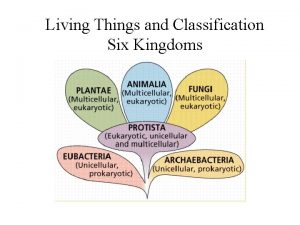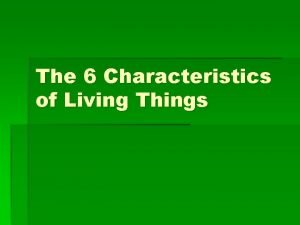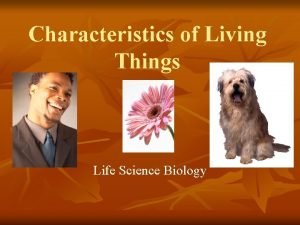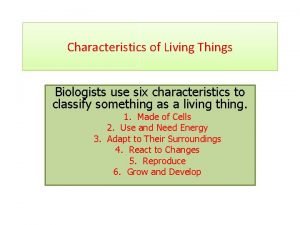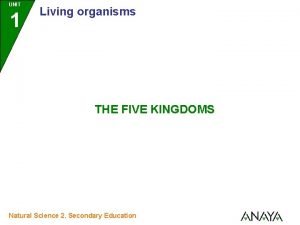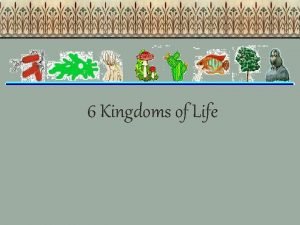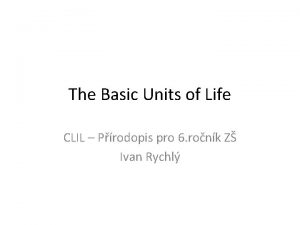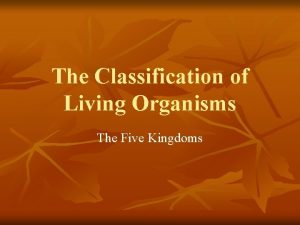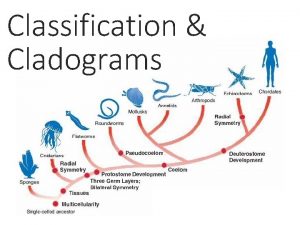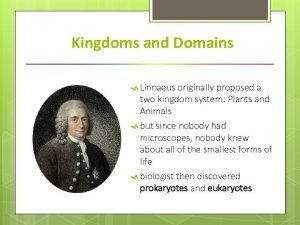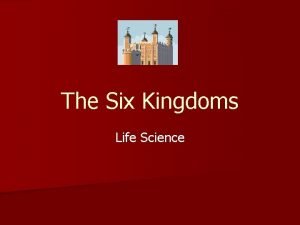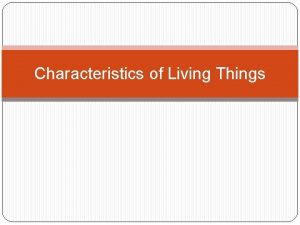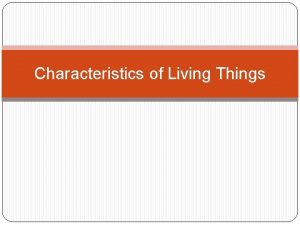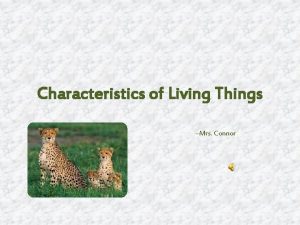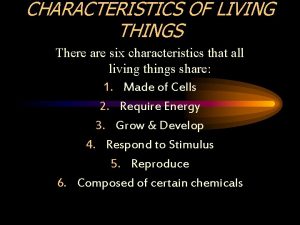Characteristics of the Six Kingdoms of Living Things











- Slides: 11

Characteristics of the Six Kingdoms of Living Things

Prokaryotic & Eukaryotic ▪ Prokaryotic: a singlecelled organism that does not have a nucleus or membranebound organelles Eukaryotic: an organism made up of cells that has a nucleus

PROKARYOTIC: 1. Archaebacteria 2. Eubacteria EUKARYOTIC: 1. Plants 2. Animals 3. Fungus 4. Protist

Unicellular & Multicellular ▪ Unicellular: as a single-celled organism Multicellular: Having or consisting of many cells or more than one cell

UNICELLULAR: 1. Archeabacteria 2. Eubacteria 3. Protist 4. Fungi MULTICELLULAR: 1. Plant 2. Animal 3. Fungi

Autotroph & Heterotroph ▪ Autotroph: an organism that makes its own food Heterotroph: an organism that gets food by eating other organisms

AUTOTROPH: 1. Archaebacteria 2. Eubacteria 3. Prostist 4. Plant HETEROTROPH: 1. Eubacteria 2. Protist 3. Fungi 4. Animal

Asexual & Sexual Reproduction Asexual Reproduction: type of reproduction by which offspring arise from a single parent Sexual Reproduction: reproduction in which the sex cells from two parents unite to produce offspring that shares traits form both parents

ASEXUAL: 1. Archaebacteria 2. Eubacteria 3. Protist 4. Fungi 5. Plant 6. Animal SEXUAL: 1. Plant 2. Animal

Mobile & Immobile Mobile: has the ability to move on its own without help from an external factor Immobile: does not have the ability to move on its own. These organisms can only move with help from external factors.

MOBILE: 1. Archaebacteria 2. Eubacteria 3. Protist 4. Animal IMOBILE: 1. Plant 2. Fungi
 Six kingdom
Six kingdom Six characteristics of living things
Six characteristics of living things Six characteristics of living things
Six characteristics of living things What are the six characteristics of living things
What are the six characteristics of living things Unit 1
Unit 1 What are the six kingdoms of life
What are the six kingdoms of life Five kingdoms of living things
Five kingdoms of living things Five kingdoms of living things
Five kingdoms of living things Common characteristics of the six kingdoms of life
Common characteristics of the six kingdoms of life Common characteristics of the six kingdoms of life
Common characteristics of the six kingdoms of life Characteristics of the six kingdoms
Characteristics of the six kingdoms Venn diagram of living and non living things
Venn diagram of living and non living things
